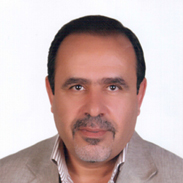Articles > > The PLO at a Crossroads: The Central Council and the Future of Palestinian Unity
Articles - Al Jazeera - Date: 2025-04-24
If not for the curiosity sweeping Palestinian political and popular circles over who would become the PLO’s second in command, few would have followed the proceedings of the current session of the PLO Central Council. And if not for the Palestinian president’s comments about Hamas, even fewer would have paid attention to his opening speech at the session. The image of the PLO and the Palestinian leadership in the public mind is clouded by doubts, accusations, distrust, and uncertainty. This is not my personal assessment; it is the conclusion of dozens of public opinion polls conducted before, and especially after, "Al-Aqsa Flood.”
The Meeting’s Context
The call to revitalize the PLO—to revive and democratize it—has been clearly voiced by Palestinians who sensed the gravity of the current moment and the magnitude of the challenges ahead. Yet these calls and initiatives, while embraced by official Arab circles (Doha, Algiers, and Cairo) and influential international ones (Moscow and Beijing), went unheeded, remaining mere cries in the dark. They were met only with walls of resistance and obstruction by a leadership accustomed to its monopoly on political power and unilateral control, unwilling or unable to consider the necessary course corrections or to abandon its failed bets—even as the threat posed by settlements and settlers, and the barbarism of the fascist right-wing now dominating decision-making in Tel Aviv, grew ever more imminent.
Thus, the call to convene the Council did not arise from a genuine desire to "put the Palestinian house in order" and mend its cracks and fissures, as Ramallah's "propaganda machine" claimed, but rather from a completely different context. It was clear that the convening of the Central Council, which usurped the powers of the highest authority of the Palestinian people, the National Council, and acted on its behalf in matters beyond its jurisdiction, lacked political legitimacy, even if it technically met the requirements for a legal quorum.
The Council convened without the participation of the main resistance factions. Hamas was not invited and, in any case, holds no representation among the central Council. The same applies to the Islamic Jihad Movement. Meanwhile, the Popular Front for the Liberation of Palestine and the Palestinian National Initiative declared an official boycott of the session. This was despite the Council's stated goal of putting its internal affairs in order. The President who, in crude terms, attacked a major Palestinian faction, is the same one who claimed to have tasked his Executive Committee with restoring unity and reorganizing Palestinian affairs.
In any case, it is no longer a secret that the Council's convening, nineteen months on from the war of encirclement, cleansing, and extermination, did not occur within the context of an internal Palestinian national framework, concerned with meeting challenges and rising to the level of catastrophe and heroism that the people of Gaza and their resistance write daily in their blood. Rather, it came in response to external pressures aimed at rehabilitating the Palestinian Authority and the PLO to align with the conditions and demands of the so-called "day after." From this perspective, it is easy to understand the suspicion and doubt with which the public and political factions regarded the event, which appeared disconnected from the gravity of the Palestinian moment and the profound dangers and challenges it faces.
The Political Landscape
When it comes to the politics of the Central Committee’s meeting, it is deeply unfortunate that foolishness was pervasive in the language used to address the Palestinian people and their various factions. This is unprecedented, or at the very least, rare in the Palestinian political experience. Yet this rhetoric alone does not fully capture the problem, nor does it diminish the significance of its underlying messages.
The claim that the issue of "hostages" serves as Israel’s genuine pretext for pursuing a war of ethnic cleansing is completely false. This is confirmed by statements from Bezalel Smotrich, who declared just one day before the Central Council convened that liberating the hostages was not a top priority of Israel’s war on Gaza. Instead, the goals are the destruction of Hamas, the displacement of Gaza’s population, the extension of Israeli sovereignty over the Strip, and the construction of settlement cities that would permanently "close" the issue.
If the matter of hostages, prisoners, and detainees were truly Israel’s motive for its war of ethnic cleansing, then what is its pretext for its ongoing rampage across the entirety of the West Bank? What excuse does it offer as it subjects the Palestinian Authority’s leadership—including the President, his Prime Minister, and his ministers—to humiliating restrictions on movement and travel, both within the West Bank and Jerusalem, and abroad? What is its justification as it accelerates its aggressive erosion of Palestinian land, rights, and holy sites? Or as it seizes Palestinian clearance revenues and imposes starvation even on the employees of the Authority’s institutions?
If the matter of hostages, prisoners, and detainees were truly Israel’s motive for its war of ethnic cleansing, then what is its pretext for its ongoing rampage across the entirety of the West Bank? What excuse does it offer as it subjects the Palestinian Authority’s leadership—including the President, his Prime Minister, and his ministers—to humiliating restrictions on movement and travel, both within the West Bank and Jerusalem, and abroad? What is its justification as it accelerates its aggressive erosion of Palestinian land, rights, and holy sites? Or as it seizes Palestinian clearance revenues and imposes starvation even on the employees of the Authority’s institutions?
And why do Palestinian officials, particular those leading the Palestinian Authority, volunteer to promote and legitimize Israeli narratives, even as Israeli leaders from both the security and political sectors distance themselves from these justifications and expose the fabricated excuses that Netanyahu and his government have concocted to prolong the war, obstruct any negotiated resolution, and justify reneging on agreements once made?
Has word not reached Ramallah of Yoav Galant’s recent admissions regarding the alleged tunnels in the Philadelphia Corridor or Ronen Bar’s testimony about the government’s efforts to extend the war and block any path to peace? Behind these two men – and what they represent- stand a cohort of senior officials, former prime ministers, and opposition leaders who have consistently blamed Netanyahu and the fascist right-wing government for the ongoing war.
Thus, Palestinians have every right to view the Central Council meeting with skepticism, given that its outcome was predetermined. It was convened merely as part of an effort to engineer “the day after"—to turn the page on resistance and prepare for compliance with the outcomes of a U.S.-backed Israeli solution. Didn’t Trump himself say, just two days ago, that he and Netanyahu were "reading from the same page"?
As for the talk of reforming the PLO, renewing its leadership, replacing its officials, and electing a "vice president," these are promises that no longer find buyers—neither among Palestinians nor among their allies and observers familiar with the internal Palestinian political landscape. You would be hard pressed to find a Palestinian who, at one point or another, has not called for the Palestinian Authority and the presidency to appoint a vice president, especially in light of the President’s advancing age. Unfortunately, these calls resulted in negative outcomes for those who dared to make them.
Today, the presidency has suddenly awakened to the need to establish the vice-presidency. But this need—more accurately, this dictate—comes not from within but from abroad. It is an external requirement: the "second man" must be someone most aligned with the unrestrained Israeli-American hegemony, ensuring a Palestinian signature on any forthcoming deal or settlement, whether tactical in the context of the post-Gaza war period, or strategic in determining the future of the Palestinian national cause.
This is not what Palestinians have been demanding for years. These are external dictates from international capitals engaged in an ongoing project to reshape and "engineer" the Middle East—with Palestine at its heart.
A Step Backward ... A Step Forward
Rather than offering hope for the restoration and unification of the Palestinian political system after its long absence, the Council’s convening only deepened divisions and worsened the national rift—especially with the overt hostility displayed toward key factions of the national movement, which still command broad influence and popularity.
It is now clear to all that we are witnessing a step backward. The reconciliation process has been effectively closed, and hopes for the revival of national awareness and conscience have faltered, with efforts falling far short.
The Central Council is no longer a reflection of Palestinian pluralism—political, social, geographic, or cultural. Instead, it has become an instrument for an influential group, summoned on demand to rubber-stamp decisions and policies mired in ambiguity and mistrust. The Council has lost its inclusive, representative character. It has become little more than a shield for the decision-making "troika" in Ramallah, isolated from the rest of the national movement’s factions—and even from significant segments within Fatah itself—not to mention the vibrant forces of Palestinian society that operate beyond the formal factions.
For all these reasons, Palestinians today meet news of the Council’s sessions with suspicion regarding the motives behind its convening, rather than regarding them as urgent or necessary. This situation leaves only one viable path forward: to pursue the formation of the broadest possible Palestinian national coalition—within the framework of a united national front—that includes the resistance factions, thousands of independent national figures, youth movements, and grassroots initiatives. The goal: to defend the PLO, reclaim it, and liberate it from the hands of those who have hijacked it.
The only option is to stop knocking on closed doors and instead open new channels of cooperation among the active forces of the Palestinian people. Only by doing so can we prevent further collapse of the Palestinian national position, salvage what remains of the "sole legitimate representative" framework, and restore prestige and purpose to the Palestinian national project—a project now facing unprecedented risks of liquidation, fueled not only by external forces but, tragically, by the actions of some Palestinians themselves.




